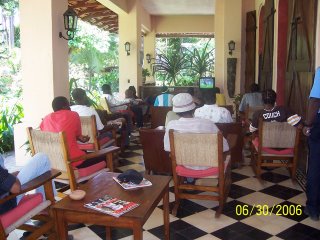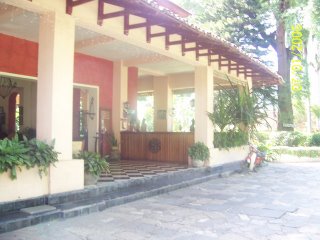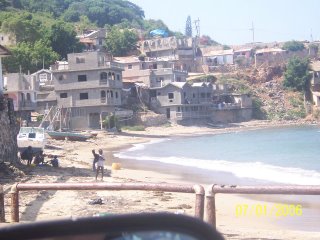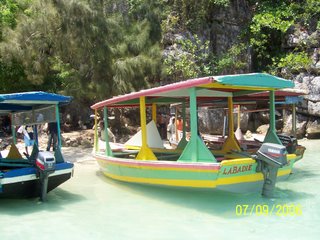
Haiti has been good to the US... Here is an article that was sent to me by a friend while I've been in Cap-Hatien:
APRIL 19, 1802: Mosquitos Win the West ......Events that change America don't always occur within our borders. Consider the spring of 1802. Napoleon had sent a formidable army under his brother-in-law, General Charles Leclerc, to quell the rebellion of former slaves in Haiti.
On April 19, Leclerc reported to Napoleon that the rainy season had arrived, and his troops were falling ill. By the end of the year, almost the whole French force, including Leclerc himself, were dead of mosquito-borne yellow fever.
When Napoleon realized his reconquest had failed, he abandoned hopes of a New World empire, and decided to sell the Louisiana Territory to the United States.
"Across a huge section of the American heartland, from New Orleans up through Montana, they ought to build statues to Toussaint L'Ouverture and the other heroes of the Haitian Revolution," says Ted Widmer, director of the John Carter Brown Library at Brown University."
Since being in Haiti, I have been busily engaged in training people at the Makouti Agro Entreprises also known as MAKAGE. It is a cooperative made up of members who produce vegetables, honey meat and crafts for marketing in the area of Cap-Haitian. First it was a one-day training on creating business and marketing plans then followed by individual sessions about creating Cashflow projections. Some are beekeeper enterprises associations that are busily trying to encourage households/farmer in Haiti to join the ranks of beekeeping--- an activity that lends itself rather well to this country. After several years of investment in Agriculture here, there are some 14,000 + beekeepers and growing. The problem, they cannot afford the hives or the material to make them so some are forming associations to try to raise monies, grants, or whatever will help these farmers manage.

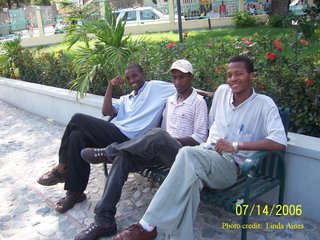 colleagues in the Mackage Agro Entreprise Association (pictured on the left.) have been working with those volunteers helping the street kids start rabit-raising or beekeeping enterprises and learn alternatives livelihoods and means of support. They also help provide food to the orphanages and have helped landscape the public parc shown in this picture. This is only a small pebble in a huge ocean of work that is badly needed here but its wonderful that these efforts are taking place.
colleagues in the Mackage Agro Entreprise Association (pictured on the left.) have been working with those volunteers helping the street kids start rabit-raising or beekeeping enterprises and learn alternatives livelihoods and means of support. They also help provide food to the orphanages and have helped landscape the public parc shown in this picture. This is only a small pebble in a huge ocean of work that is badly needed here but its wonderful that these efforts are taking place. 


 Sixty six percent (66%) of Haitians make a living through agriculture. But it is very difficult for food producers to get their products from their garden or farm to market because the roads are very bad. A typical vehicle will not last 3 years on such roads and the associations are the only means of joining together to eliminate some of the barriers in the Marketplace.
Sixty six percent (66%) of Haitians make a living through agriculture. But it is very difficult for food producers to get their products from their garden or farm to market because the roads are very bad. A typical vehicle will not last 3 years on such roads and the associations are the only means of joining together to eliminate some of the barriers in the Marketplace.



